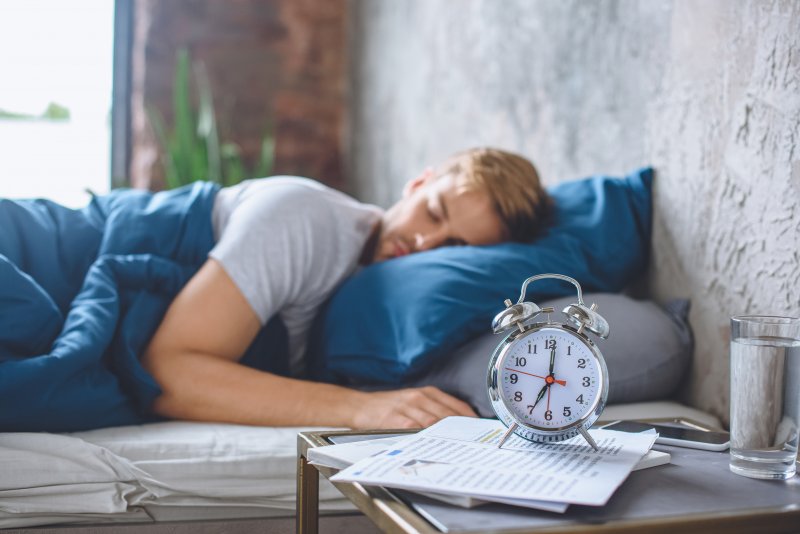
This year, daylight saving time (DST) is happening on Sunday, March 8th. We will be “springing forward” — meaning we’re losing an hour of sleep, much to everyone’s chagrin. Whether you’re a person who is already dreading the time change or thinks it’s no big deal, the reality is that springing forward does have effects on your body. Fortunately, with a little know-how, you can ensure that you’re well-rested at every time of the year, regardless of what the clock says.
Your Sleep & the Time Change
When we set our clocks to “spring forward,” our body’s internal circadian rhythm often doesn’t get the memo. Essentially, our body’s internal sleep and peak activity levels don’t really adjust to daylight saving time in the spring — we stay on a winter schedule, even though our social and work schedules switch to “summer mode.” While the lasting impacts of this shift are still being looked into, there are medical professionals who have studied the issue and have concluded that daylight saving time has long-term, negative effects on the body. Many are advocating for eliminating daylight saving time nationwide. In fact, the state of Arizona hasn’t observed DST since 1967.
The Consequences of Springing Forward
While there are potential long-term health effects associated with daylight saving time, the short-term effects are undeniable.
In one study, researchers analyzed 732,835 accidents recorded through the U.S. Fatality Analysis Reporting System from 1996 to 2017. For the week after daylight saving time, the risk of fatal crashes rose nearly 6%.
Additionally, during phase advancement (the practice of setting clocks forward one hour for daylight saving time), employees, on average, sleep 40 minutes less and have 5.7% more workplace injuries than on non-phase change days.
Sleep Hygiene Tips to Fall Asleep the Night Before DST
It’s a good idea to ease your body into the new schedule as much as possible to help avoid the negative short-term effects. Here are Dr. Rodgers’ tips for how to do it:
Essentially, Dr. Rodgers suggests going to bed one hour earlier than you normally do the day before the clocks “spring forward” to account for the time change.
To help you fall asleep an hour earlier than normal, follow the below tips:
- Tire yourself out — think exercise, chores, and extra socialization — the day that you are going to go to bed an hour earlier. However, do NOT exercise too late in the evening, as this can actually energize you and make a restful night’s sleep more difficult to achieve.
- Avoid the use of alcohol in the few hours before bed. While these substances will certainly help you fall asleep faster, your sleep quality will be lower.
- Turn off all electronics at least an hour before bed. Most screens emit a blue light that tells your brain that it is still daytime, which reduces your body’s production of the sleep hormone melatonin and can make it harder to fall and stay asleep. So, if devices are unplugged, how should you spend your time before bed? It may seem like an overstated tip, but read a book!
- Make sure that your bedroom is completely dark, quiet, and on the cool side (around 68 F or lower), which are the ideal conditions for sleep.
Beating the Clock
If you typically struggle right after springing forward, be sure to use Dr. Rodgers’ tips so you can start this part of the year on the right foot.
But, if you find yourself struggling with sleep regardless of the time of the year, then you may be dealing with a more serious issue such as sleep apnea. Dr. Rodgers can help you get the treatment you need. It all starts by scheduling a free consultation here at Sleep Better Georgia. Once your physician diagnoses you with sleep apnea, Dr. Rodgers can provide you with a custom oral appliance that will allow you to get the rest you need no matter the time of year!
